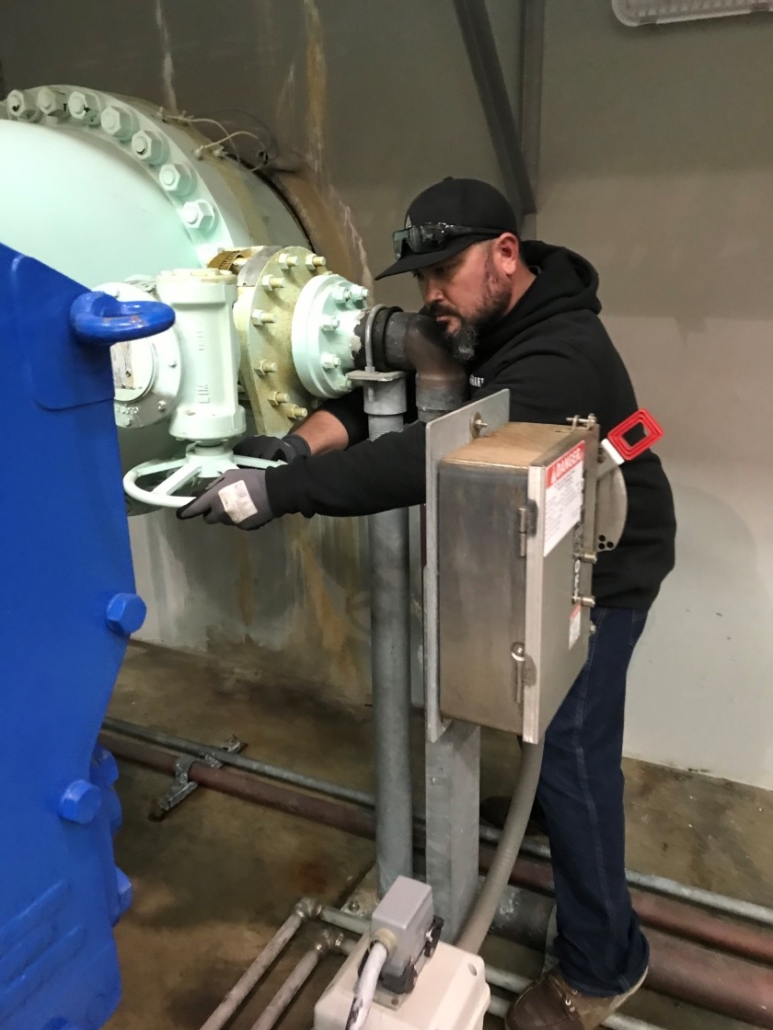California Water Wars Heat Up With Suits From State Contractors
Water contractors in California are suing the state over its new permit that authorizes water deliveries, the result of a conflict with the Trump administration’s policies.
Water contractors in California are suing the state over its new permit that authorizes water deliveries, the result of a conflict with the Trump administration’s policies.
Wastewater in sewage systems could provide a quicker and earlier indication of the spread of SARS-CoV-2, the Covid-19 virus, claim scientists working with Northumbrian Water and global partners.
From the moment he took office, Gov. Gavin Newsom said he wanted to bring peace to California’s water wars. But now, more than a year later, most of the warring factions are united against his plan for governing the Delta.
The San Diego County Water Authority is making progress on the construction of a new 5 million gallon underground reservoir in Mission Trails Regional Park. The underground reservoir is also known as a flow regulatory structure.
Classified as a “critical or essential” infrastructure project during the COVID-19 response, the project is moving forward to stay on schedule.
It’s the early 1990s, and Park Williams stands in the middle of Folsom Lake, at the base of the Sierra Nevada foothills in Northern California. He’s not walking on water; severe drought has exposed the lakebed.
“I remember being very impressed by the incredible variability of water in the West and how it’s very rare that we actually have just enough water,” said Williams, who went on to become a climate scientist at Columbia University. “It’s often the case there’s either too much or too little.”
Williams is the lead author on a report out this month in the journal Science detailing the extent of drought conditions in the American West.
Dan Walters’ column does a good job describing a potential water battle that all Californians should want to avoid. The historic cooperation between the state and federal governments that has managed California’s water supply is threatened by this looming battle. We can’t let that happen.
The view from high up in Del Mar’s 17th Street lifeguard station is a visit-California poster: a sweeping curve of sand, dramatic coastal bluffs, a welcoming sea. What scientists see, though, is somewhat more sobering: the Pacific Ocean as seething menace, a marine battering ram born of climate change that will inexorably claim more and more land and whatever sits upon it.
With rising seas now posing a greater threat to California’s economy than wildfires or severe earthquakes, state authorities are cautioning those who live along some of the Golden State’s famous beaches to do what they’re loath to do: retreat. Turn their backs to the sea and move homes, businesses, schools and critical infrastructure out of harm’s way.
The ocean could rise two to ten feet by 2100, imperiling $150 billion in property, according to state estimates, and erasing two-thirds of California’s beaches.
U.S. Interior Secretary David Bernhardt isn’t shying away from reminding Californians who reigns supreme in its water wars. In a letter issued Tuesday, Bernhardt reminded California leaders that its ability to act unilaterally in enacting restrictive rules governing the Sacramento-San Joaquin Delta is limited and could violate the law.
While restaurants, gyms, schools and other buildings are closed indefinitely to prevent the spread of COVID-19, the quality of water left sitting in pipes could change.
In buildings nationwide, water left sitting for long periods of time could contain excessive amounts of heavy metals and pathogens that are concentrated in pipes, say researchers who have begun a field study on the impact of the pandemic shutdown on buildings.
The problem of stagnant water may not be confined to buildings recently closed. Water could have been bad for months or years in old hospital buildings that cities are reopening to accommodate a potential influx of COVID-19 patients.
Name: Austin Casey
Job: San Diego County Water Authority system operator
Family: Wife, Mina; three children
Task during the pandemic: “As systems operators we are here to ensure the aqueduct system keeps water flowing safely and reliably throughout San Diego County. We maintain our daily tasks of operating, water quality sampling, and station checks to ensure all equipment is functioning properly. During the pandemic, we have been reminded of how critical it is to be efficient and effective with our normal duties, so we are ready to take on unforeseen challenges.”
How has pandemic changed the job? “I feel our job is the same during the pandemic. It’s more of adjusting to a new normal and being able to staff the department in a way where everyone feels safe.”
How are you keeping safe? “We say the control room and surrounding office has never looked so clean because of all the sanitizing we are doing. We are also getting used to social distancing and being aware of personal space, because we do work in close quarters. Hand washing and sanitizing all our office equipment, field instruments and trucks has been key to staying healthy.”
“The role we play as critical infrastructure operators may go unseen to many, but we are here to ensure the public receives a safe, secure, reliable supply of water without having to worry about it at all.”

San Diego County Water Authority System Operator Austin Casey is one of the essential workers keeping the region’s water supply safe, reliable and plentiful. Photo: San Diego County Water Authority
The Union-Tribune wants to recognize workers who are still on the job serving the public during the coronavirus crisis.